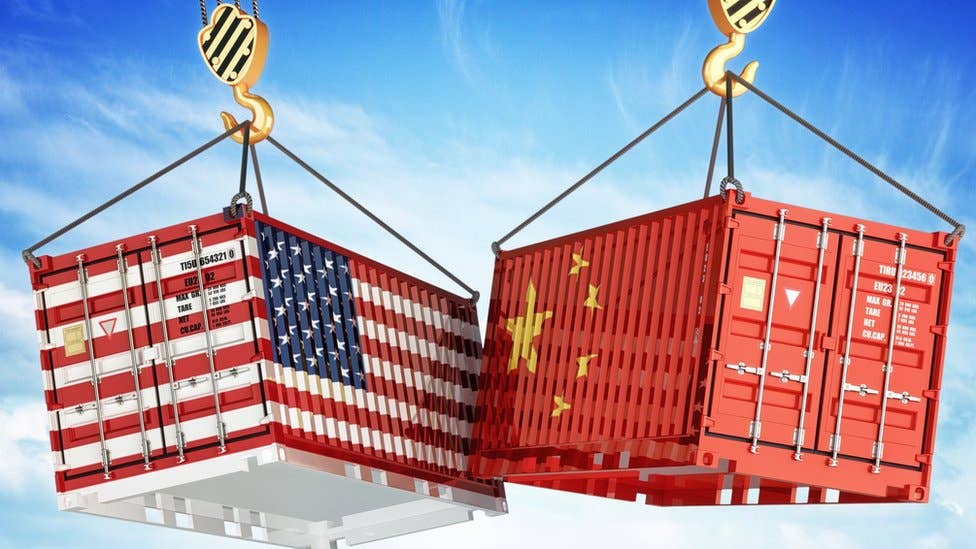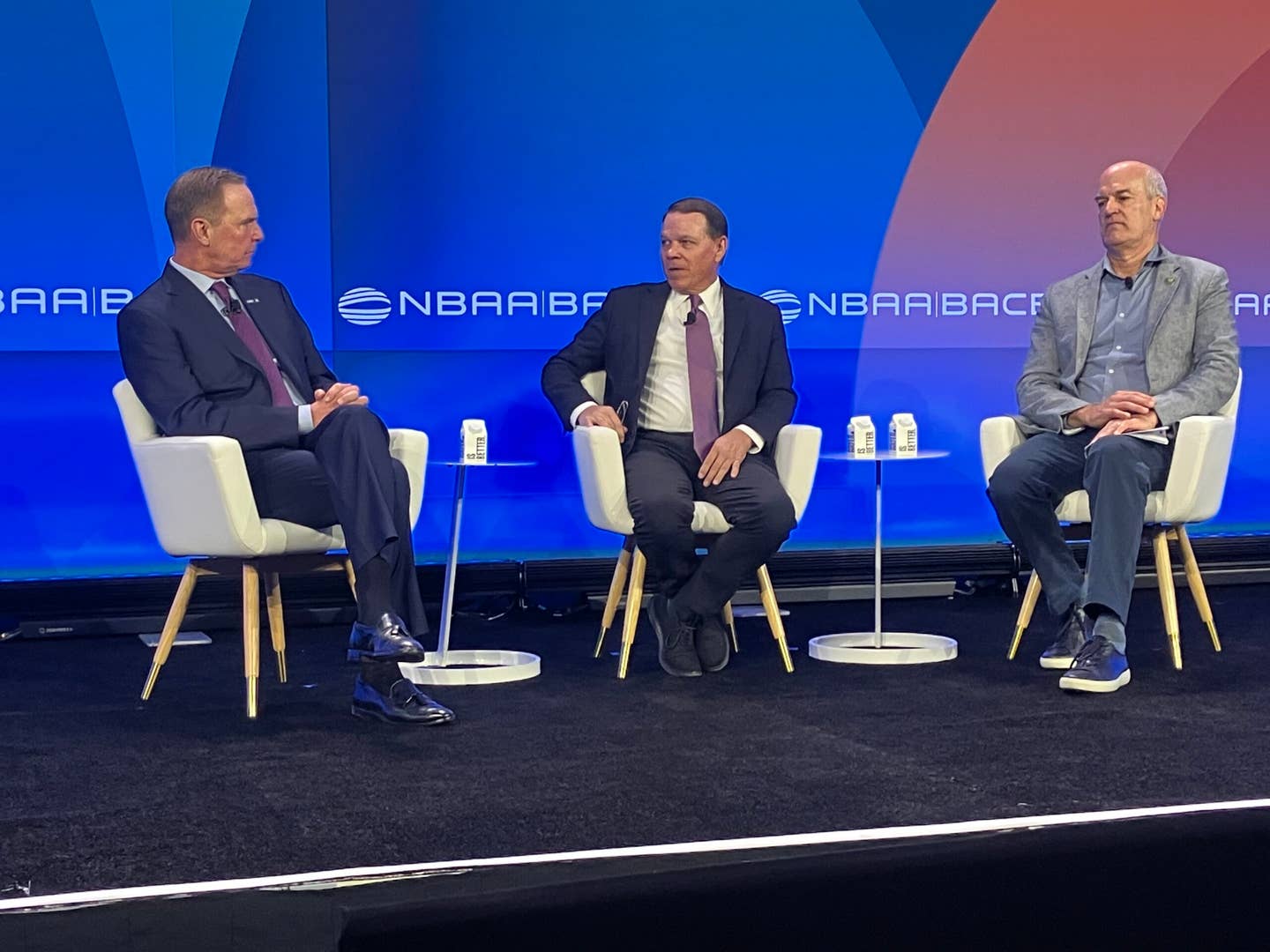The China Chickens Come Home
Ten years ago, everyone had to have a China plan. Now, it’s more like defensive crouch.

Credit: BBC
The beauty of unfettered capitalism, especially American capitalism, is that it’s usually good at what it’s supposed to do: efficiently replicating capital in a consumption-driven economic system designed for infinite growth. Nice theory, but before you know it, the Chinese own half of your aviation industry even if investors have soured on what was once thought as The Next Big Thing in aviation: a billion Chinese hearts filled with the unquenchable desire to slip the surly bonds of Hainan. They’d need a lot of Cessnas, the thinking was.
Meanwhile, back on Earth, we’re entering the age of fettering, otherwise known as a head-jerking allergic reaction to globalism. And the aviation industry is caught right in the middle of it. Last week, the Trump administration announced an executive order prohibiting U.S. investors from buying stock in 31 Chinese companies closely linked to the Chinese military. By dint of aviation starting with an A, right at the top of the list are three companies all of us will recognize: Aviation Industry Corporation of China (AVIC), China Aerospace Science and Technology Corp. (CASC) and China Aerospace Science and Industry Corp. (CASIC).
These companies are mongrels only possible in a communist system with capitalist pretensions. AVIC, for instance, is a state-owned umbrella company with about 100 subsidiaries, including China Aviation Industry General Aircraft (CAIGA), which bought Cirrus in 2011. AVIC also owns Continental Aerospace Technologies, nee Continental Motors, nee Teledyne Continental. At least some of the subsidiaries are directly capitalized with stock and AVIC International Holding trades on the Hong Kong exchange. There’s no American equivalent of these business entities but if there were, it would be sort of like buying stock in NASA or the Postal Service.
In the global scheme of things, some of these companies have been good investments, but not lately. AVIC ranks 163rd on the Fortune Global 500, having slipped from 151 a couple of years ago. Full disclosure: I might have owned some AVIC stock seven years ago when Asian funds were hot. But now western funds are doing better and if I ever had AVIC, I don’t now. And anyone who bought AVIC to hold it is down more than 90 percent in five years, which is to say an executive order prohibiting its purchase is like a recall notice for a Yugo. So for the aviation stocks, the EO may be more for geopolitical optics than to strangle the flow of capital to our enemies. That may be less true of the tech companies on the list. In any case, the executive order is anti-competitive, anti-capitalist and, wait for it, necessary.
Which gets us to the morality of capital reproducing itself. Is there any? How about patriotism? Any of that guide investors? I’m gonna guess not much. Still, if AVIC or CASC came up on my horizon as a fund option today and I knew it, I would pass, even if the return was attractive. I agree with the administration that U.S. investors shouldn’t be helping a country that seeks to undercut our own in a zero-sum game of economic and military dominance using unfair trade practices. There are many other options to make money.
The Boeings, LockMarts and Northrop Grummans may have the cozy relationship with the government that Dwight Eisenhower warned us against, but they are not quite divisions of the Defense Department in the way AVIC is of the Chinese government and party apparatus.
The companies who sold aviation interests to the Chinese—Cirrus, Continental, Diamond—and a host of others, faced similar calculus fully aware of China’s zero-sum approach to competing with the U.S. Might as well throw in Piper, which is owned by Brunei interests, but who lack China’s rapacious business practices. All of these sales were controversial at the time and this space filled with comments critical of them. Yet, all of those sales represent capitalists simply trying to maximize return on their investments, as capitalists have always done. If the U.S. government had intervened to halt these sales, wouldn’t it have been taking a ballpeen hammer to Adam Smith’s thumb? The sellers would have said so then. Maybe they still would.
Those sales were an example of a major growth engine for the U.S. economy: foreign direct investment. It’s the obverse of the China investment coin. The U.S. by far leads the world in FDI because of, well, that American capitalism I was talking about above. FDI reached a peak of more than $500 billion in 2015 and has been in sharp decline since. China’s FDI barely reached half of the U.S. value and it too is in decline, although recovering modestly recently.
Our understanding of why the Chinese bought these companies is imperfect, but the ostensible driver was to acquire technology, aerospace business acumen and know-how to fulfill the Chinese aspiration to dominate the world’s economy. Like communist countries everywhere, China’s is a planned economy and part of the planning included advancing the aerospace and aviation industries. China realized the quickest way to that goal was to buy existing companies rather to trying to home grow them.
Cirrus was a natural opportunistic target. After initial success, Cirrus ran into trouble after the 2008 downturn. It languished in stasis until AVIC bought it in 2011. For two years and a seemingly endless stream of news stories by us saying not much, no western capital came forward to invest in Cirrus. Why? Because western capitalists want more return than Cirrus, even in a good year, could ever generate. The Chinese long game has a different goal and U.S. aviation companies were more than willing to help them get there if it meant a quick buck. That includes not just companies that sold to Chinese interests, but companies who were expected to have a “China plan” with joint ventures or technology exchanges. American capital’s vision extends typically to the next quarter, not the next decade or even the next year.
The U.S. government has blocked Chinese purchases of some companies because of sensitive technology. None of that applied to Cirrus, of course. There’s nothing edge-of-tech about building composite general aviation airplanes, including a single-engine jet. On the shiny side of DFI, there are jobs at Cirrus that might not exist without AVIC money and an impressive jet—the Vision—that sells well but, likewise, probably wouldn’t have existed without the sale. Either way, jobs or not, American expertise is training its own competition for the next decade, if not sooner.
The administration’s EO would appear to have no meaningful impact on Chinese-owned aviation companies in the U.S. It doesn’t prevent inbound DFI, although escalations in the ongoing trade war might. Mooney, for example, was bought by a non-state Chinese company and after China cracked down on corruption, it became more difficult to get money out of China into U.S. investments. As a result, the investors got disinterested and Mooney is now more or less on its own in the hands of a small American management group, its future clouded.
The bottom line here is that with its planned economy, China has—or had—the advantage of targeted purchases to fulfill a plan that stretches well into the 21st century. The U.S., by its very nature and fundamental beliefs, has resisted government meddling in private enterprise and international trade and in place of even the hint of a coherent industrial policy, we shift policies with each new administration and squabble over the details.
The bedrock of our success has always been the inexorable efficiency of capital finding a way to multiply itself, free of regulation, free of tariffs and with minimal taxation. China has shown it’s uniquely advantaged to slip through the cracks in that system and I wonder if what we’re doing now is too little, too late, albeit in the right direction. But it is disjointed, partly for being unilateral. With a new administration, I would hope to see coherent industrial policy—including for aviation—more forward focused on containing China or at least not being so helpful that a few companies can cash in at the expense of the greater whole.






